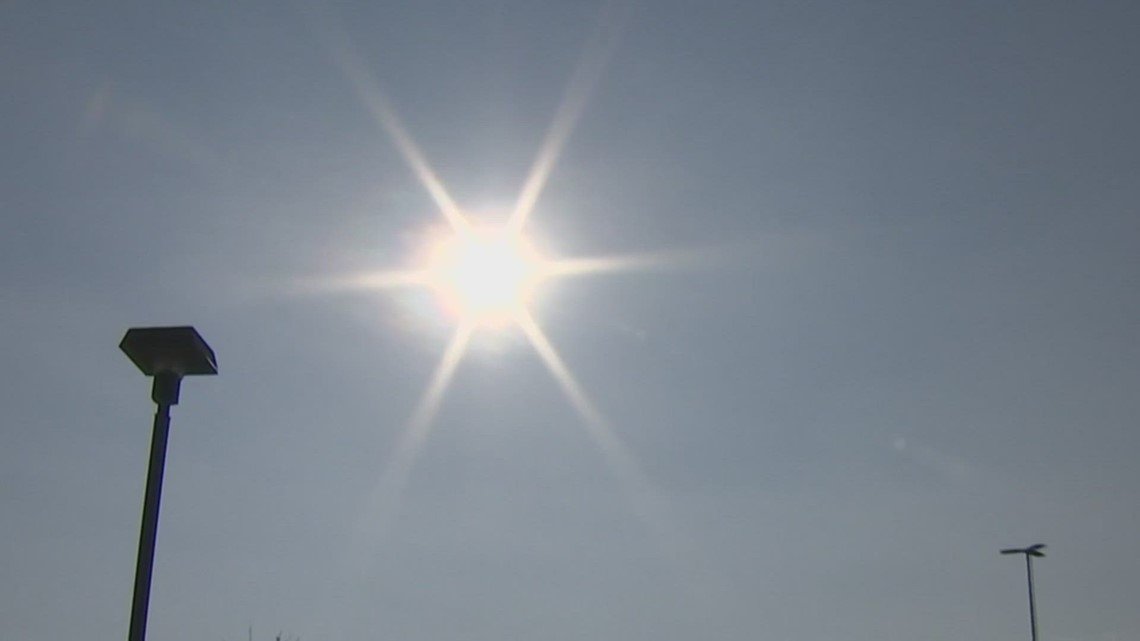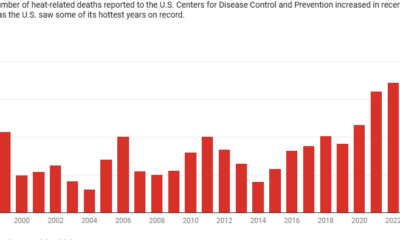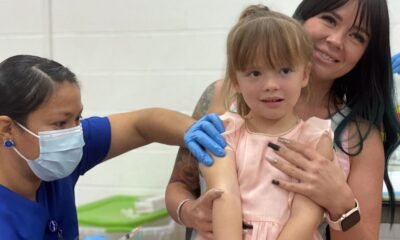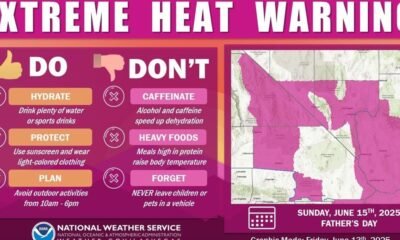arizona
The Impact of Extreme Heat on Mental Health: What You Need to Know

Recent studies have found an association between extreme heat and higher rates of mental health–related hospital visits.
PHOENIX — Researchers are beginning to better understand the possible effects constant exposure to extreme heat has on a person’s mental health.
Multiple studies published in recent years have highlighted how suicide rates tend to rise with increases in monthly average temperatures. Another highlighted the correlation between days of extreme heat and higher mental health–related hospital visits.
Anticipation is growing that worsening summer heat could exacerbate mental health issues.
This research holds particular significance for a city like Phoenix, which faced a record-breaking heat wave last summer and frequently reports heat-related deaths as temperatures soar.
Arizona’s public health data reveals a spike in suicide-related events in July 2023, coinciding with Phoenix’s average daily temperature reaching 102.7°F.
Dr. Pope Moseley, an intensive care physician and professor at Arizona State University’s College of Health Solutions, stated that chronic heat exposure can disrupt brain signals, adversely affecting mental health.
“That’s why you see people with dementia, anxiety, depression hospitalized during heat waves,” Moseley said in an interview with 12News earlier this summer.
The American Psychological Association notes that individuals on psychotropic medications are especially vulnerable during intense heat waves due to impaired heat tolerance caused by these drugs.
Valley medical providers are striving to equip residents with the necessary resources to cope during the summer months.
Banner Behavioral Health Hospital in Scottsdale has recently recorded a 14% increase in admissions compared to the previous month, though it is unclear if these admissions are specifically tied to heat-induced mental health concerns.
Alexzis Figueroa, Banner Health’s director of behavior health services, advised that locals check with their medical providers about how their medications may interact with hotter weather. She emphasized the importance of support systems and making lifestyle adjustments to minimize heat exposure.


















